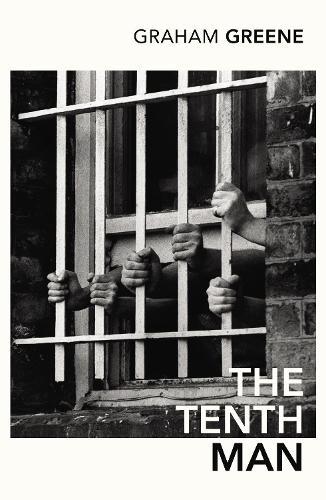Overview
'A masterpiece - tapped out in the lean, sharp prose that film work taught Greene to perfect' - Sunday Times WITH AN INTRODUCTION BY THE AUTHOR In a prison in Occupied France during the Second World War, the order is given that every tenth inmate is to be executed. Louis Chavel, a rich lawyer, draws the short straw and barters everything he owns to exchange places with another man and survive. Destitute but free, Chavel later returns to the house that he sold for his life, where he must face the consequences of his cowardice and seek redemption.
Full Product Details
Author: Graham Greene
Publisher: Vintage Publishing
Imprint: Vintage Classics
Dimensions:
Width: 12.90cm
, Height: 1.00cm
, Length: 19.70cm
Weight: 0.120kg
ISBN: 9780099284147
ISBN 10: 0099284146
Pages: 160
Publication Date: 01 June 2000
Recommended Age: From 0 years
Audience:
General/trade
,
General
Format: Paperback
Publisher's Status: Active
Availability: To order

Stock availability from the supplier is unknown. We will order it for you and ship this item to you once it is received by us.
Reviews
Greene was a past master of the psychological thriller and this was no exception Observer Typically full of psychological obsession and tricks of perspective, this short story plays games with the concepts of identity and freedom. Threaded through with paranoiac attempts to be sure of time, life, and death, the story ends with impenetrable paradox; with a tragedy and a travesty, a revenge and a redressal, truth and the ultimate lie The Times All of the Greene hallmarks are there: pace, ingenuity, a sense of profundities suggested but never insisted upon Sunday Telegraph
Typically full of psychological obsession and tricks of perspective, this short story plays games with the concepts of identity and freedom. Threaded through with paranoiac attempts to be sure of time, life, and death, the story ends with impenetrable paradox; with a tragedy and a travesty, a revenge and a redressal, truth and the ultimate lie * The Times * All of the Greene hallmarks are there: pace, ingenuity, a sense of profundities suggested but never insisted upon -- Penelope Lively * Sunday Telegraph * A masterpiece - tapped out in the lean, sharp prose that film work taught Greene to perfect * Sunday Times * Greene was a past master of the psychological thriller and this was no exception * Observer *
By his own admission (in a brief introduction here), Greene had completely forgotten the existence of an unpublished story called The Tenth Man - sold in 1944 to MGM, which dug it out of the archives in 1983. And, if that seems like an unpromising omen, so does the fact that Greene fills out the first half of this slight volume with two more ideas for films - both of them thin, shorthand-style scenarios. It's a pleasant surprise, then, to find that The Tenth Man itself is a more-than-respectable novella - far from a major addition to the Greene oeuvre, but a curious, intense, ironic tale reminiscent of Georges Simenon's better exercises in darkly psychological suspense. The setting is Nazi-occupied France during WW II; the Germans have filled a prison with innocent Frenchmen - to use as hostages in case of anti-German activities by the French townfolk. So, after two German soldiers in the town are murdered, the orders are that one man in every ten shall be shot in this camp. And when a single, middle-aged Paris lawyer named Chavel draws one of the fatal lots, he offers all his wealth - cash, country house - to anyone who'll take his place before the firing squad: a young fellow nicknamed Janvier agrees, making sure that his new fortune will be passed on to his mother and sister. Jump, then, to postwar France - where the shamed lawyer, now calling himself Chariot, can find no work, is near starvation. . . and pathetically arrives at his old country-house, now inhabited (gypsy-style) by Janvier's old mother and young sister Therese. But, though Therese is obsessed with hatred for the cowardly lawyer who enticed her brother to his death, she never suspects that Chariot is this very man: she lets him stay on as handyman; he slowly falls hopelessly in love with her, unable to share his dark, guilty secret. And when a thoroughgoing villain - a con-man/actor who falsely claims to be the real Chavel - later arrives at the house, anti-hero Chariot becomes something of a true hero, redeeming his previous cowardice. Less than fully satisfying, with characters who remain only sketches - but full of sharp Greene touches (including a button-down priest) amid the slightly murky Simenon-esque landscape. (Kirkus Reviews)
Author Information
Graham Greene was born in 1904. He worked as a journalist and critic, and in 1940 became literary editor of the Spectator. He was later employed by the Foreign Office. As well as his many novels, Graham Greene wrote several collections of short stories, four travel books, six plays, three books of autobiography, two of biography and four books for children. He also wrote hundreds of essays, and film and book reviews. Graham Greene was a member of the Order of Merit and a Companion of Honour. He died in April 1991.




